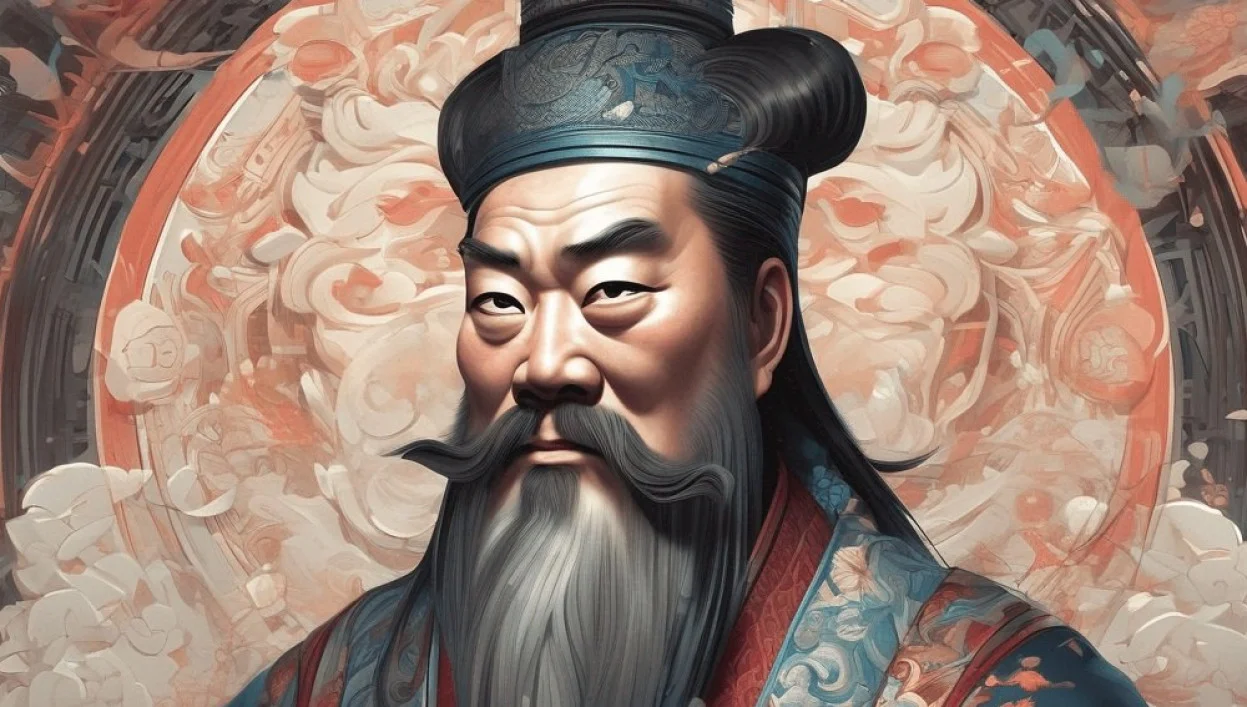Kong Qiu (circa 551–479 BCE), better known around the world as Confucius, was a Chinese government official and perhaps its most important philosopher. He founded Confucianism, a school of thought so influential that it's sometimes seen as a religion in China. But unlike prophets of other faiths, Confucius said almost nothing about gods—he was not interested in mysticism, and the ideological system he created is not a set of religious rules, but a grand moral and ethical instruction on proper behavior.
- 1. On Foresight
- 2. On Solid Qualities and Accomplishments
- 3. On the Young
- 4. On Living Simply
- 5. On Extravagance and Parsimony
- 6. On Stress
- 7. On Government
- 8. On People
- 9. On the Gifted
- 10. On Students
- 11. On the State
- 12. On Food
- 13. On Kindness and Evil
- 14. On Children
- 15. On Perfectionism
- 16. On Temptations of Different Years
- 17. On Changing
- 18.
- 19. What to read
Confucius (like many other philosophers of more or less the same period such as Greeks, Indians, Jews, and Iranians) believed that the world, earth and human beings were originally created to be perfect, but over time, everything began to deteriorate. To restore the proper order of existence, it is necessary to behave like the ancients, to follow tradition and ritual in everything, and to stay away from innovation of any kind. He thought that innovations—whether in music, literature, production, or society—may seem very attractive, but their very novelty is evidence of their wickedness and falsehood. If they were really good, they would have existed in the world from the beginning, but if they did not exist in the past, it would be better if they did not exist in the future.
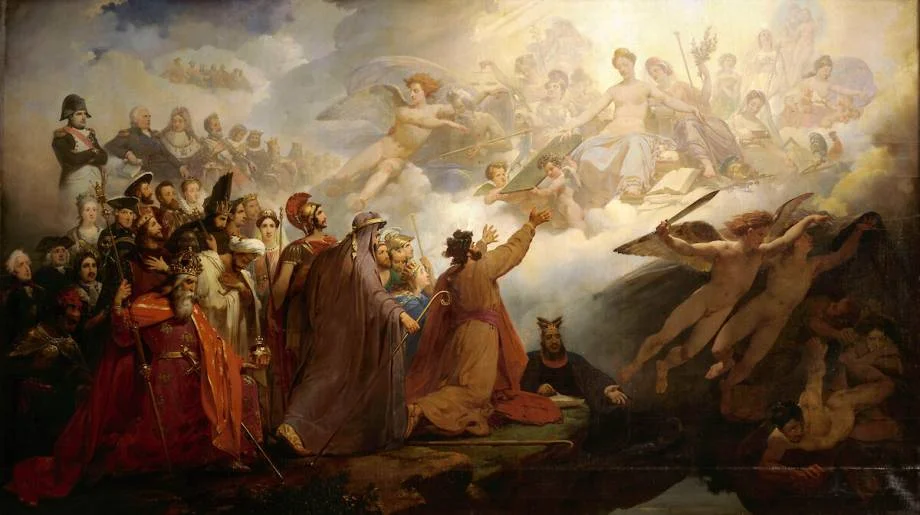
Jean-Baptiste Mauzaisse “La Sagesse Divine donnant des lois aux rois et aux législateurs” 1827. The detail of the ceiling of the Salle des Conferences du Conseil d'Etat (Louvre), showing Confucius together with Mosesand Muhammad among the greatest legislators of the past© RMN /Gérard Blot
In Confucius’ view, the state was the triumph of order over decaying chaos, and so the state held the highest value for him. The ethical system of Confucianism fully supports the pyramidal, strong, traditional system of society, in which subjects are completely subordinate to the authorities, the younger to the older, and children to their parents. Confucius worked hard to create the rules of the ‘noble man’, or junzi, the ideal educated official, whom he contrasted with xiaoren, or insignificant people, concerned only with themselves and their own profit. Confucius left behind several treatises, the most famous of which is Lunyu, commonly known in the West as The Analects. The quotations that follow are taken from it.
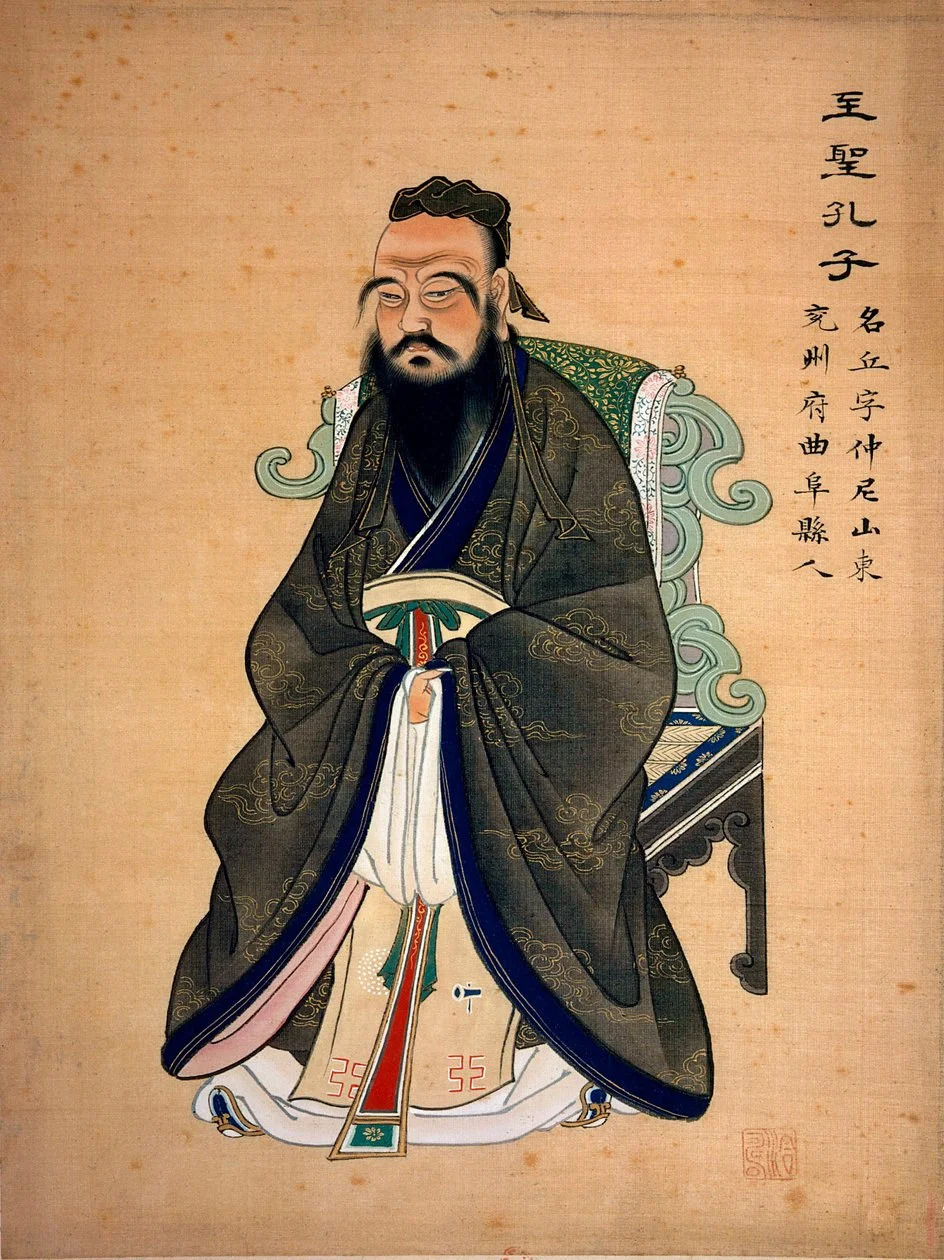
Confucius (551-479 BC). Gouache on paper painting, c. 1770/Alamy
On Foresight
‘The superior man acts before he speaks and afterwards speaks according to his actions.’
On Solid Qualities and Accomplishments
‘Where solid qualities are in excess of accomplishments, we have rusticity; where accomplishments are in excess of solid qualities, we have the manners of a clerk. When accomplishments and solid qualities are equally blended, we have a man of complete virtue.’
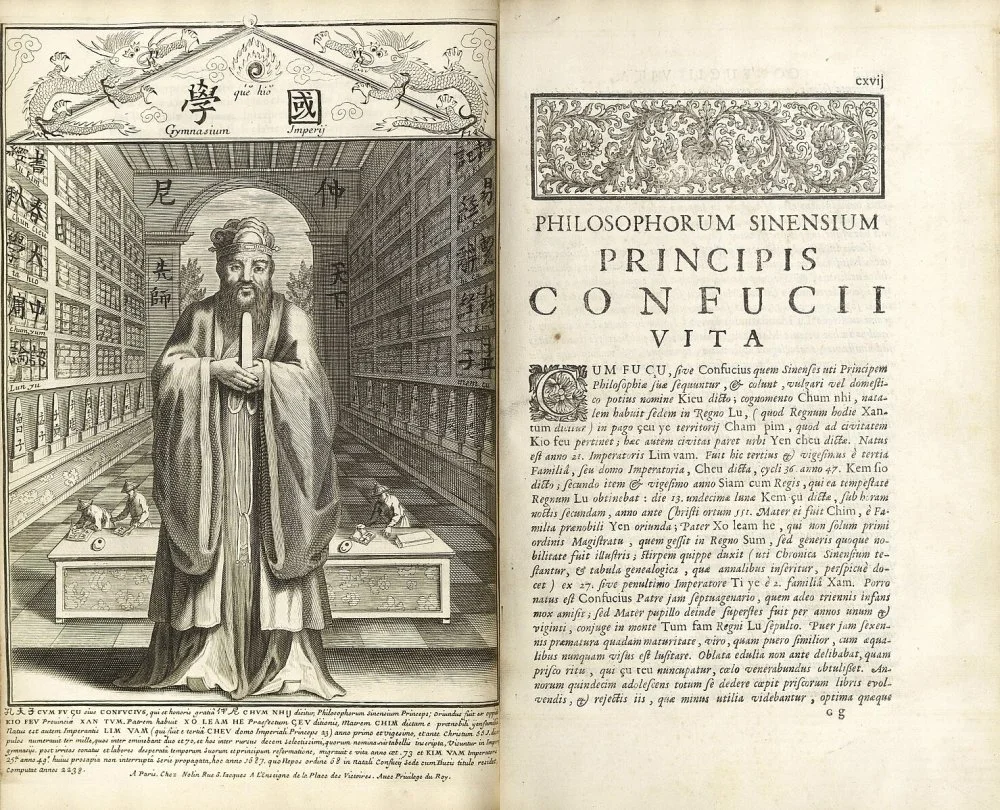
Pages from Confucius Sinarum Philosophus ("Confucius, the Philosopher of the Chinese"), an annotated Latin translation of three of the "Four Books" of Qing Confucianism published by Jesuit missionaries at Paris in 1687/Wikimedia Commons
On the Young
‘A young man should serve his parents at home and be respectful to elders outside his home. He should be earnest and truthful, loving all, but become intimate with his innate good-heartedness. After doing this, if he has energy to spare, he can study literature and the arts.’
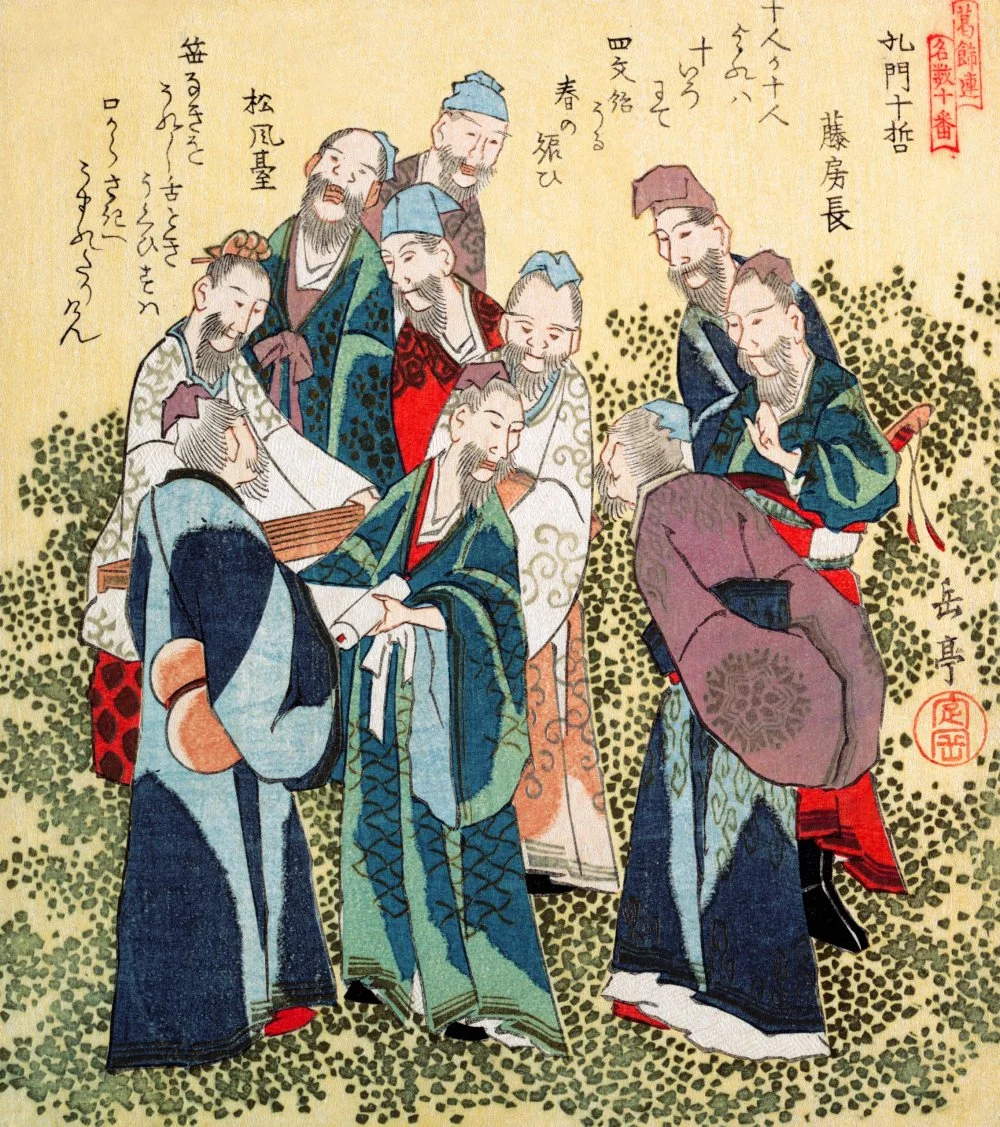
Yashima Gakutei “Ten wise men amongst the disciples of Confucius”. 1850/Getty Images
On Living Simply
‘If I have coarse grain to eat, cold water to drink, and my bent arm for a pillow, there is joy to be found in these things. Riches and honors acquired by unrighteous means are like floating clouds to me.’
On Extravagance and Parsimony
‘Extravagance leads to insubordination and parsimony to meanness. It is better to be mean than to be insubordinate.’
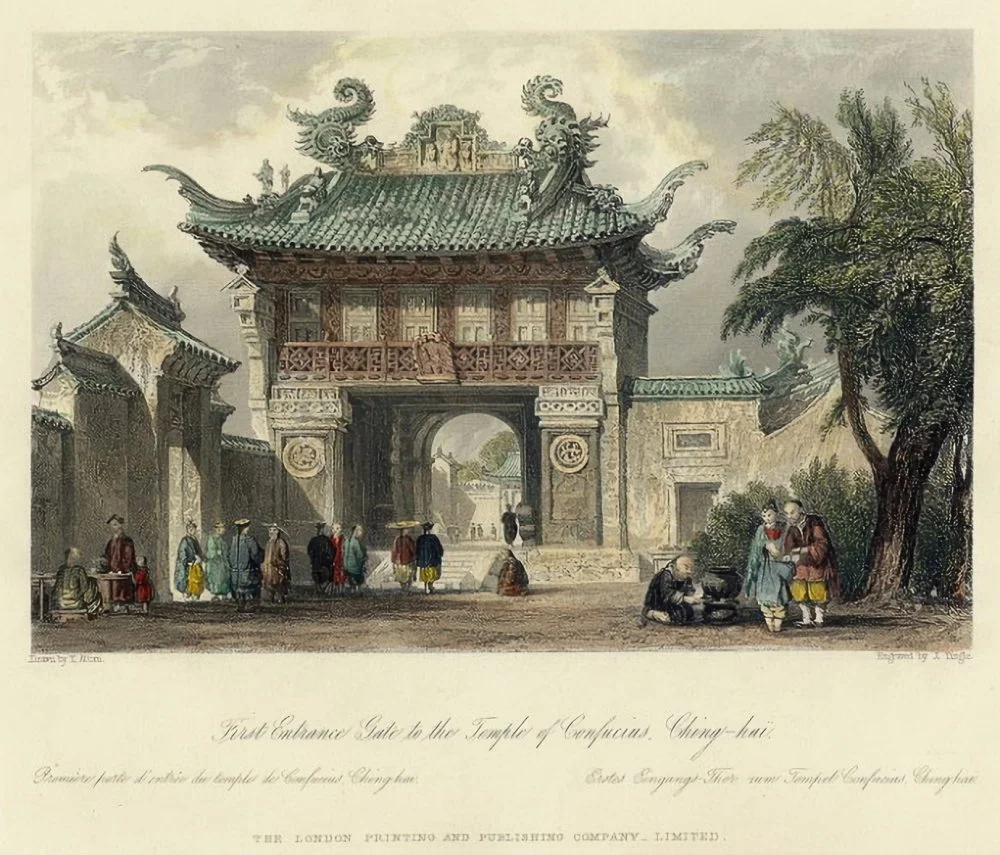
First Entrance Gate of the Temple of Confucius, Ching-hai, the 1860s/Picryl.com
On Stress
‘The noble man is calm and serene, the inferior man is continually worried and anxious.’
On Government
‘If the people are led by laws, and uniformity is sought to be given to them by punishments, they will try to avoid the punishment but will have no sense of shame. If they are led by virtue, and uniformity is sought to be given them by the rules of propriety, they will have a sense of shame, and, moreover, will become good.
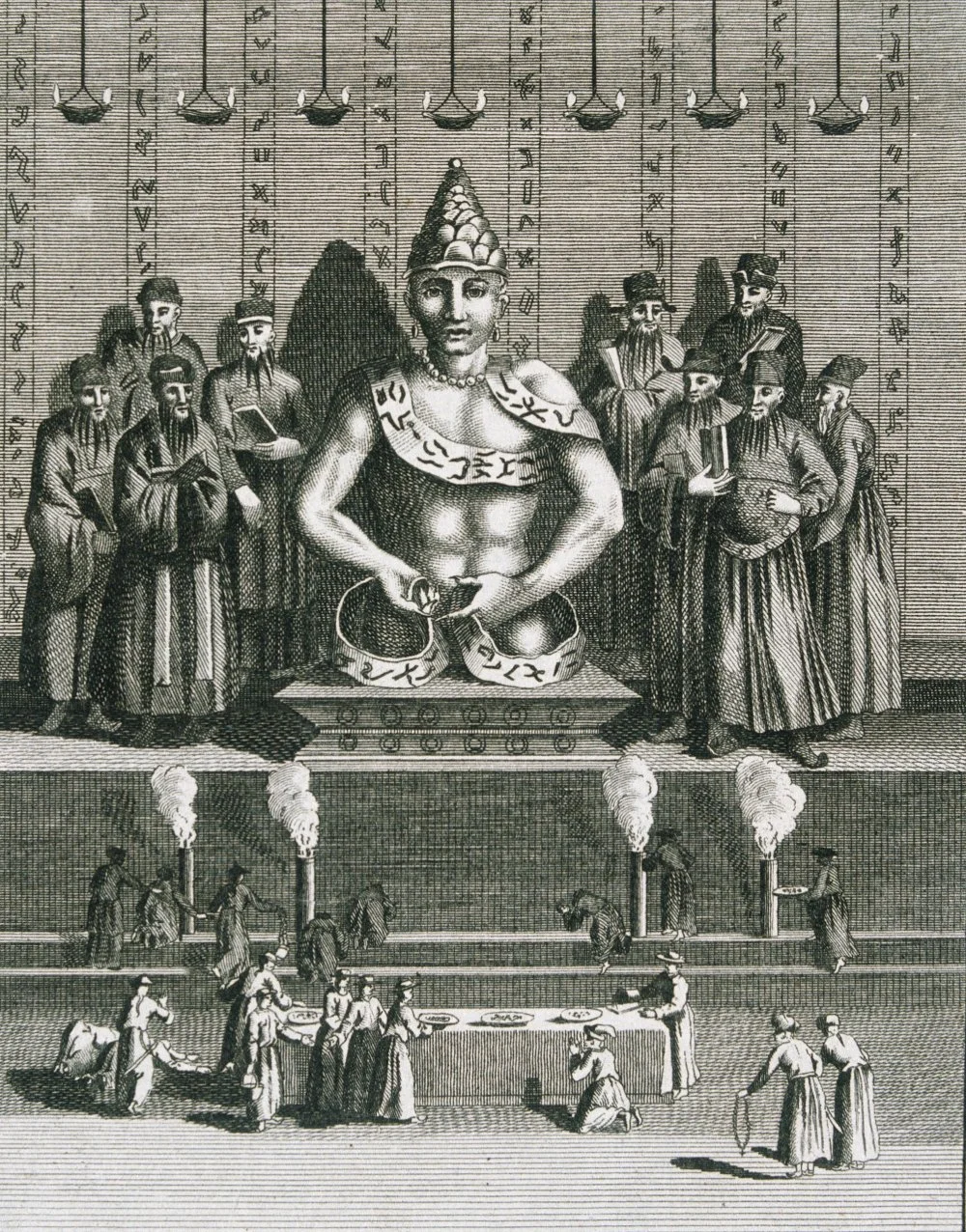
The Image of Confutius and the Sutangs from Dr. Hurd's Religious Rites and Ceremonies of All Nations. 18th century engraving of the image of Confucius being worshipped/Corbis via Getty Images
On People
‘People can be brought into obedience, but they cannot be brought into understanding.’
On the Gifted
‘Let a man shine with talents, but if he is arrogant and greedy, his talents are not worthy of attention.’
On Students
‘It is not easy to find a man who has learned for three years without coming to be good.’
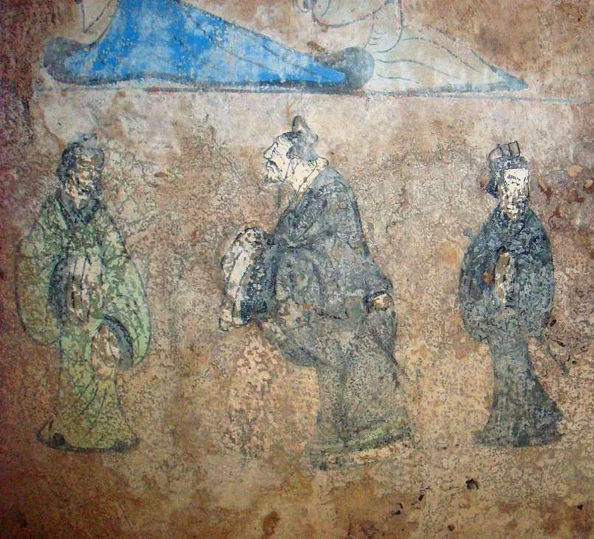
Laozi meeting with Confucius in a Han Dynasty fresco from Dongping County, Shandong Province. The fresco, painted with blue, green, black and red colours is found on the walls of a tomb at an old residential yard in Dongping county, southwestern Shandong, and is estimated to be about 2,000 years old/Getty Images
On the State
‘Enter not into a country that is unstable; dwell not in a country that is in turmoil. Shine in a world that follows the Way; hide when the world loses the Way. In a country where the Way prevails, it is shameful to remain poor and obscure; in a country which has lost the Way, it is shameful to become rich and honored.’
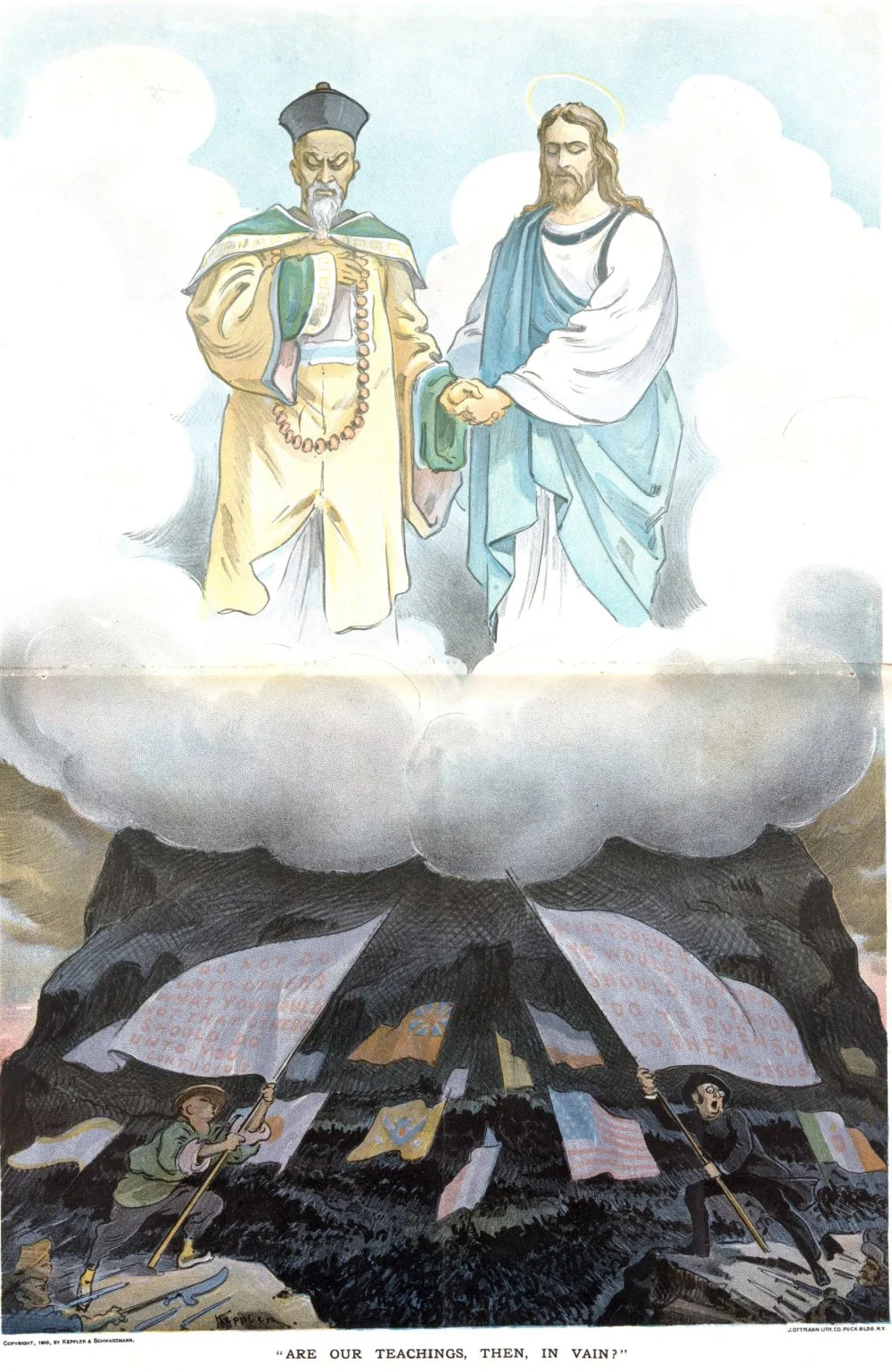
Chromolithograph print titled 'Are our teachings, then, in vain?' created by Udo J Keppler (1872- 1956). The illustration depicts Jesus Christ and Confucius looking down at the confrontation of the Boxer revolution. Dated 1900/Getty Images
On Food
Confucius’ disciples reported that he had simple tastes in food. He enjoyed eating well-cooked rice and having his minced meat cut small, but he would not eat anything that had gone bad. He liked having his meat cut in a specific way and served with its proper sauce, but he was not a big eater. There always had to be ginger at the table, and when eating, he did not converse. Although his food might have been coarse rice and poor soup, he would offer a little of it in sacrifice with a grave, respectful air. The only thing he didn’t limit was wine, but he did not allow himself to get drunk. When the villagers were drinking together, and men with staves were going out, he went after them immediately.
On Kindness and Evil
‘There are those men who preach repaying evil with kindness. But I say, how then are we to repay kindness? Repay kindness with kindness, but repay evil with justice.’
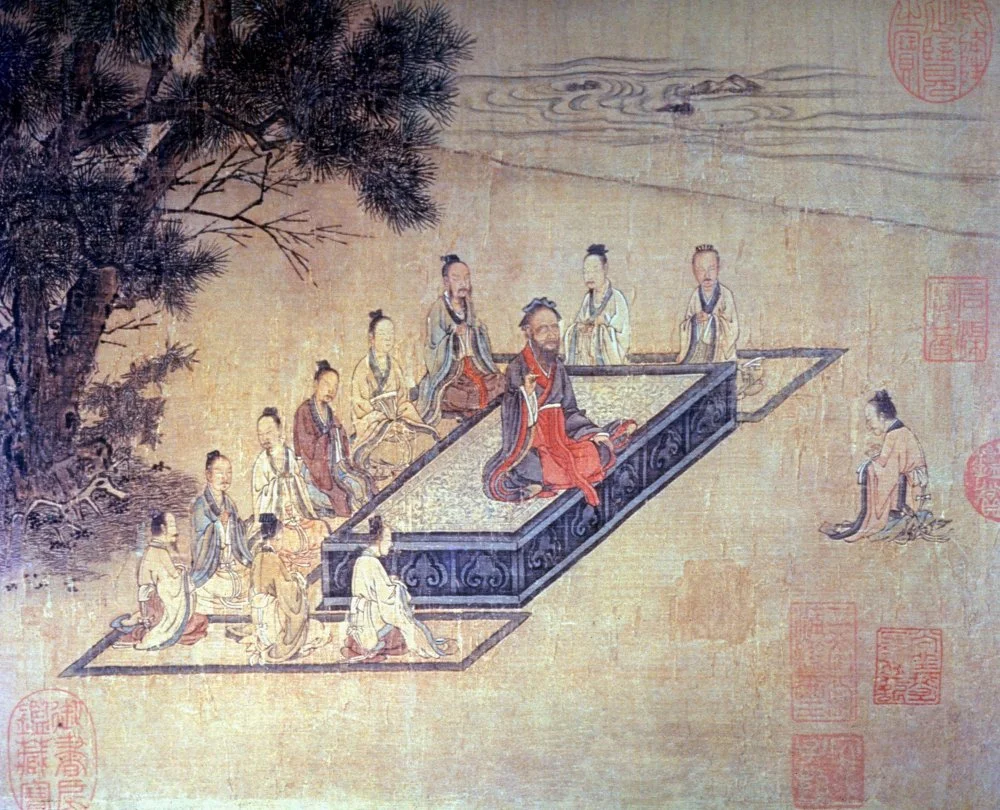
Zengzi (right) kneeling before Confucius (center), from the Illustrations of the Classic of Filial Piety, Song dynasty/Legion-Media
On Children
‘A person asked a teacher about a certain boy’s future: “Will he prosper?”
The teacher replied, “I see that he sits like an adult, walks like an adult. He will not prosper, because he is striving to succeed too soon.”
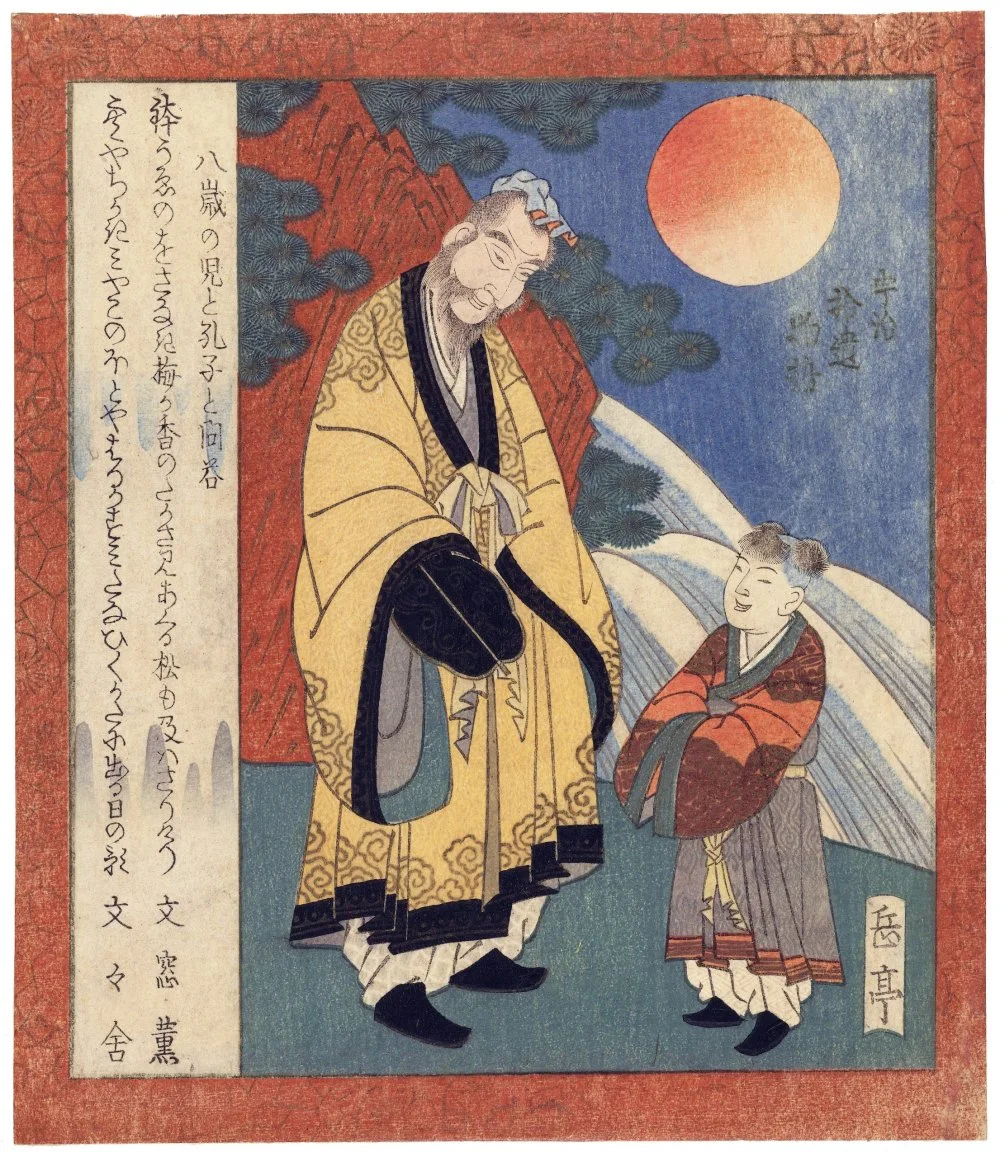
Yashima Gakutei “Confucius disputing a point with an eight year old boy”, c. 1829/Getty Images
On Perfectionism
‘If you expect great things of yourself and demand little of others, you’ll keep resentment far away. A noble man makes demands of himself, a low man makes demands of others.’
On Temptations of Different Years
‘The noble man is on guard against three things: When he is a young man and his physical energies are not yet settled, he is on guard against lust. When he is mature and his physical energy is solid, he is on guard against being drawn into a fight. When he is old, and his physical power is weakened, he is on guard not to cling to his attainments.’
On Changing
‘Only the wisest and stupidest of men never change.’
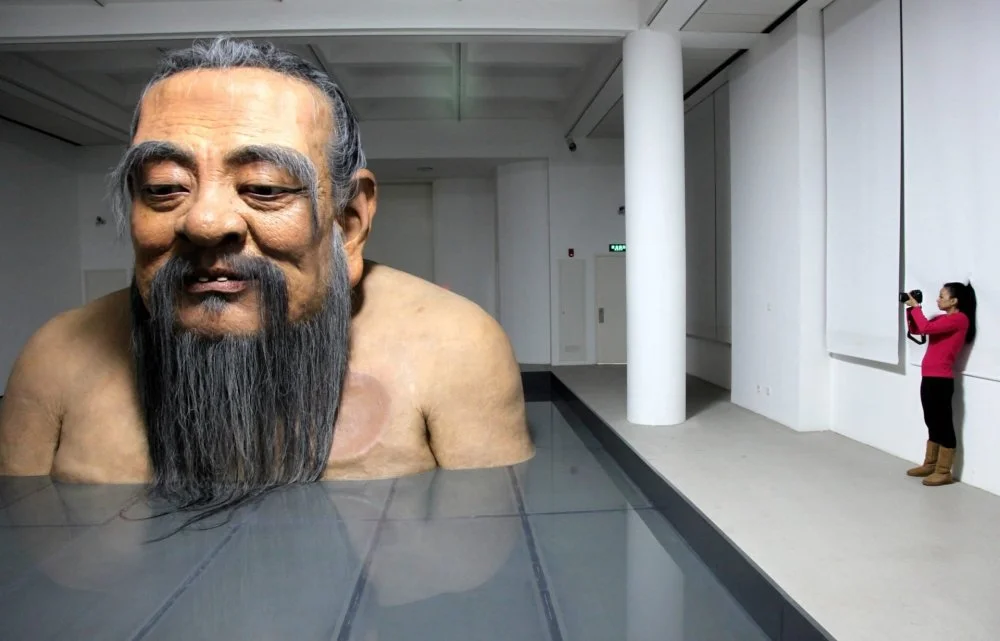
A woman photographs a giant silicone sculpture of Confucius made by the Chinese artist Zhang Huan at the Rockbund Art museum on December 13, 2011 in Shanghai, China/Olivier CHOUCHANA/Getty Images
What to read
The Chinese Classics. 1869. Translated by James Legge. London.
